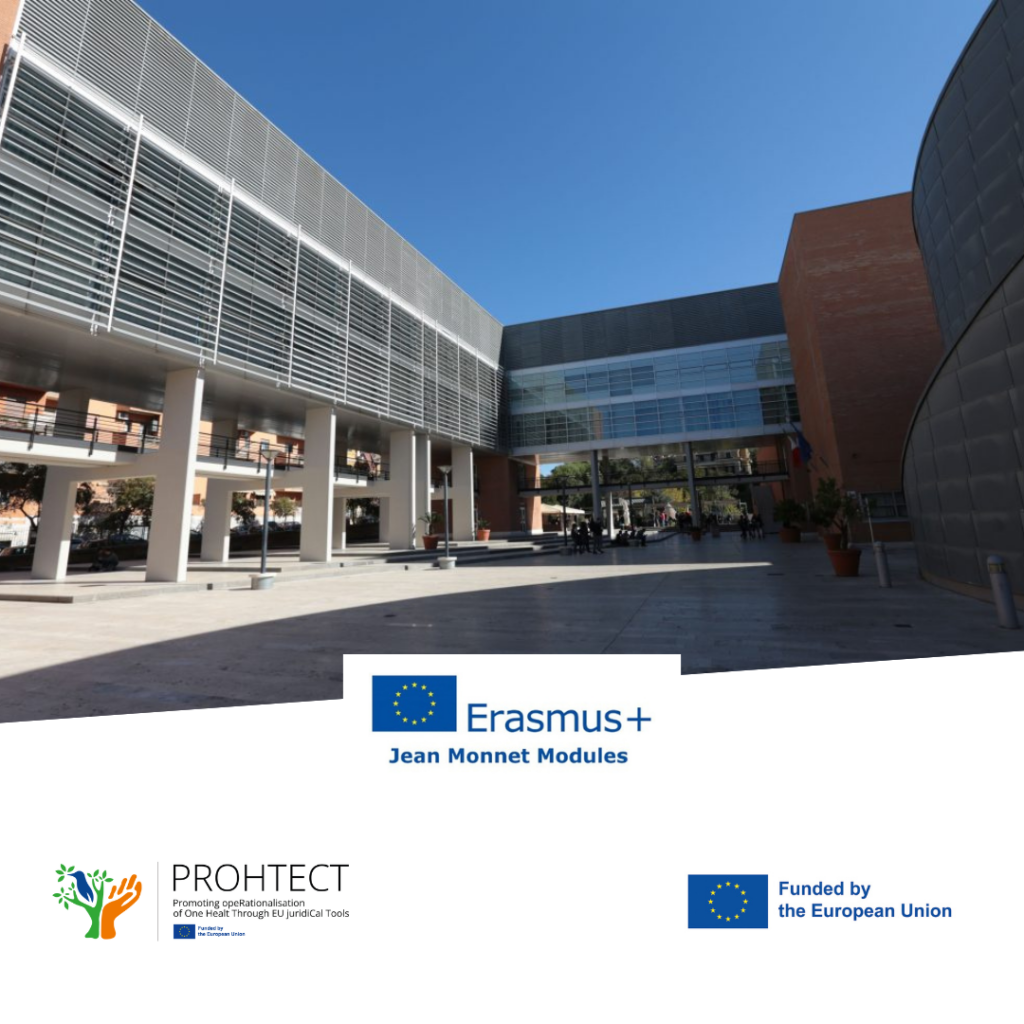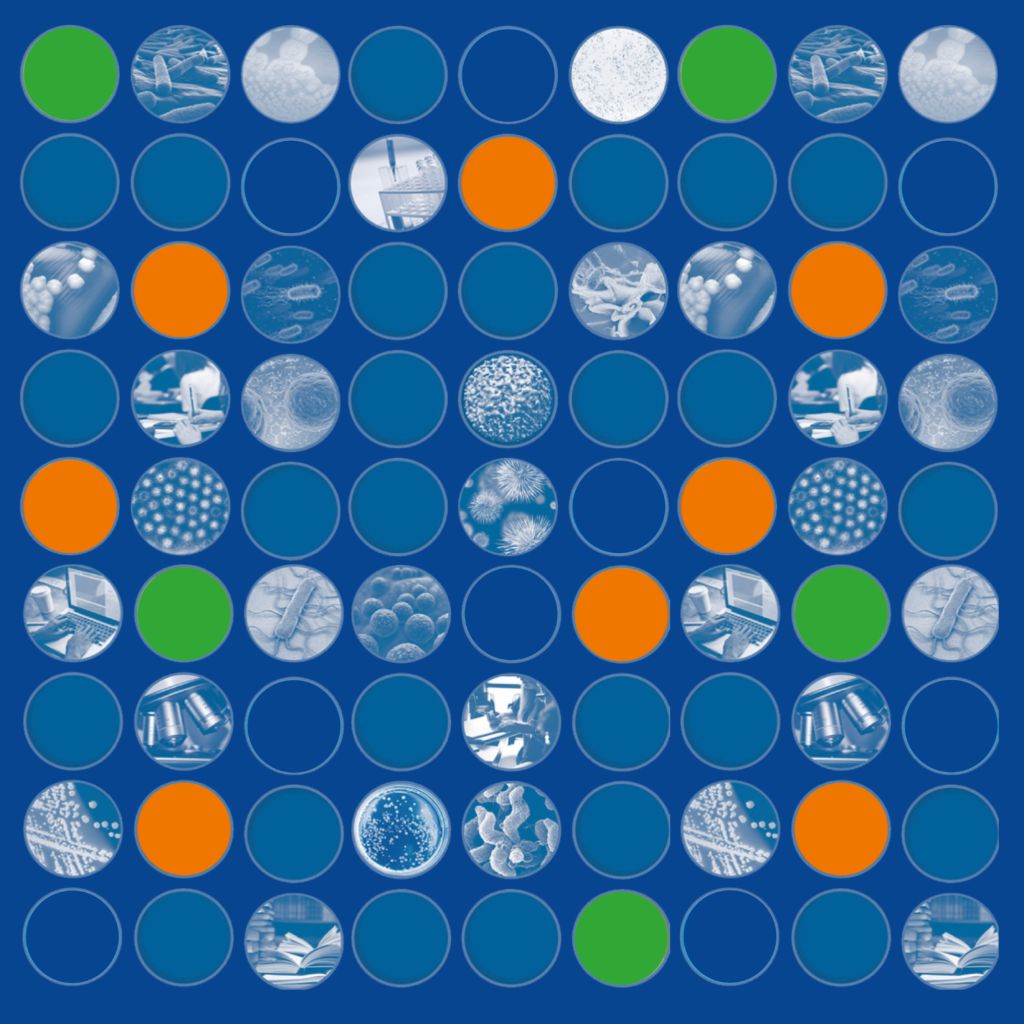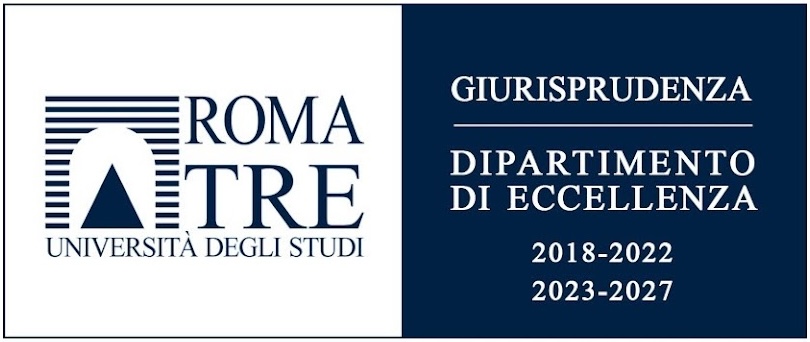What is One Health?
The term One Health (OH) has become widely used in public discourse, especially after the Covid-19 pandemic. Initially known only among experts in epidemiology, medicine, and veterinary science, the OH approach has now entered the language of politics, public policy, and even law, parallel to the growing awareness that human health is closely linked to the health of animals and the environment.
Despite the increased attention in recent years, significant challenges remain in transforming this approach from a simple concept to a concrete operational system, based on the interconnectedness of the three pillars: human, animal, and environmental health. In summary, the operationalization of One Health remains an ongoing challenge (One Health European Joint Programme-OHEJP 2022).
PROHTECT addresses this gap by focusing on how legal tools can enable the systematic implementation of the One Health approach in the EU, concentrating on four key insights:
- The One Health approach goes beyond emerging and re-emerging infectious diseases at the human-animal-environment interface, offering a new perspective for shaping policies that can better respond to the challenge of a sustainable future for the planet and its inhabitants;
- The innovation of the One Health approach lies not in its content, but in the methodology required for its implementation, which focuses on creating mechanisms and procedures for coordination, communication, collaboration, and capacity building;
- The interdisciplinary and intersectoral action required to systematically address health threats through the "One Health lens" is made possible by organizational and procedural measures, as well as specific legal institutions, which are foundational to the law and must necessarily transcend national borders to be effective;
- EU law must play a key role in making the One Health approach operational.


Why PROHTECT?
What distinguishes PROHTECT is its legal perspective. While the One Health approach has traditionally been explored and studied in the medical and veterinary fields, this project focuses on the role of law as a tool to overcome institutional barriers and create an interconnected and functional system. Building on the extensive teaching experience of the faculty at the Department of Law at Roma Tre University on these issues, PROHTECT concentrates on the pivotal role that European Union law can play in transforming One Health from a mere theoretical framework to concrete policies and practices.
Main Objectives
Educational Objective
PROHTECT is dedicated to deepening the knowledge and understanding of the One Health approach through a tailored teaching program aimed at exploring its legal and interdisciplinary dimensions. For more details, please refer to the page dedicated to the educational activities of the MODULE.
Research Objective
PROHTECT promotes interdisciplinary research that bridges the gap between legal studies, natural sciences, and public policy. The project analyzes how EU legal frameworks can facilitate intersectoral collaboration and make the One Health approach operational.
Dissemination Objective
The project is committed to raising awareness about the value of the One Health approach and its role in shaping sustainable and inclusive policies. PROHTECT organizes a variety of events to promote dialogue between academics, students, policymakers, and the wider public.
The research results will be disseminated through academic publications, policy briefs, and more. These materials will target both the academic community and policymakers, as well as the general public, providing insights on how EU law can guide the integration of policies related to health, the environment, and animal welfare.





